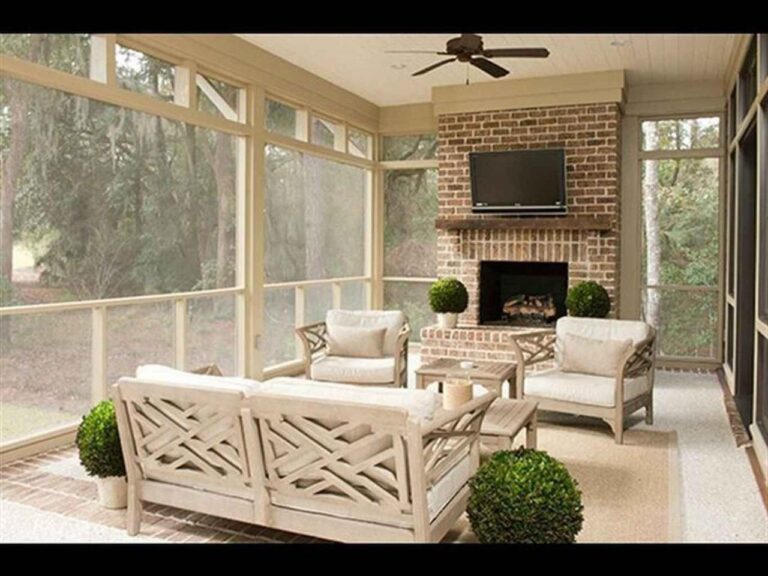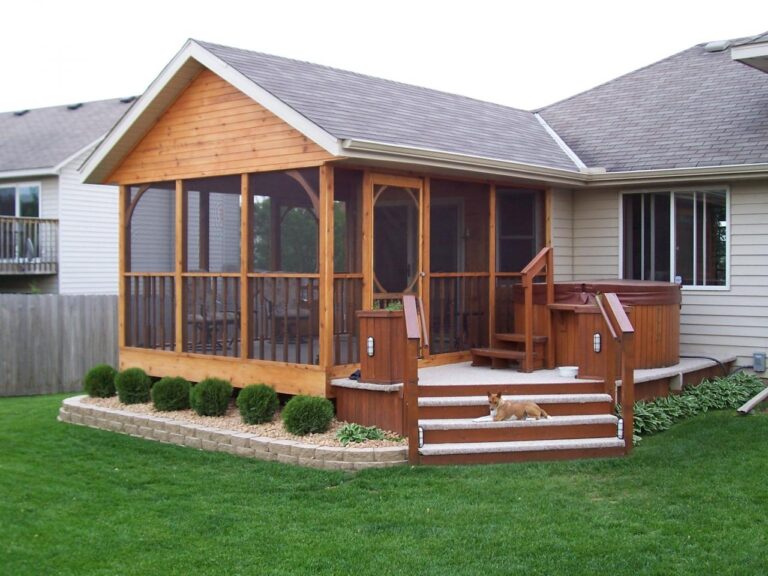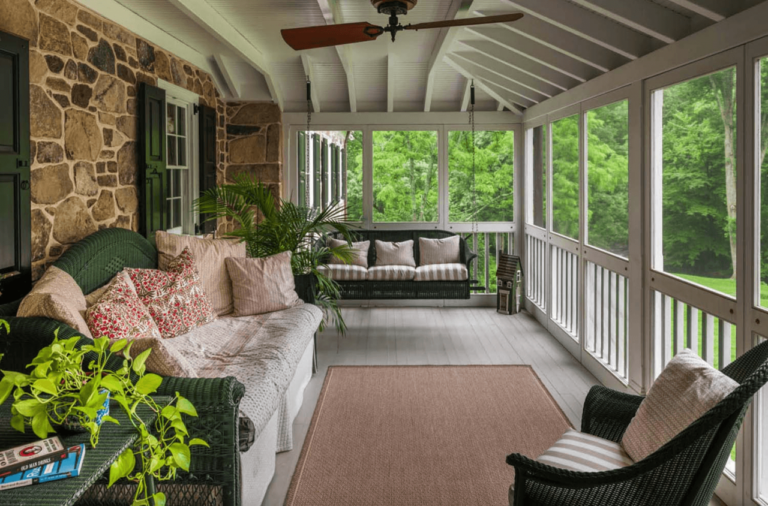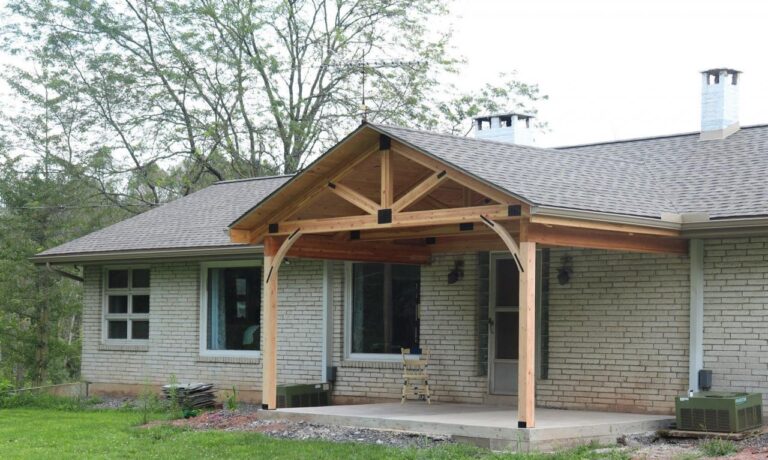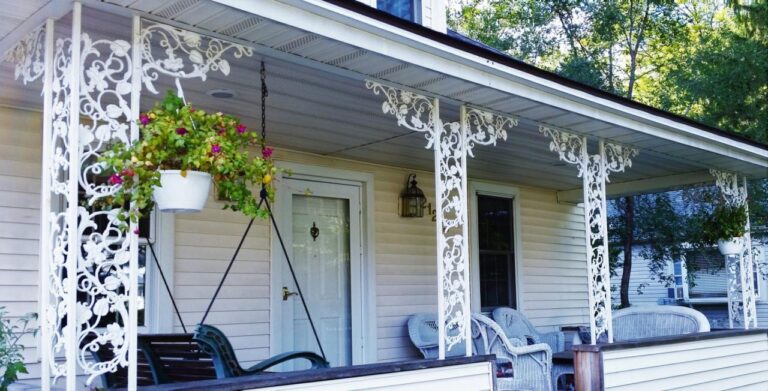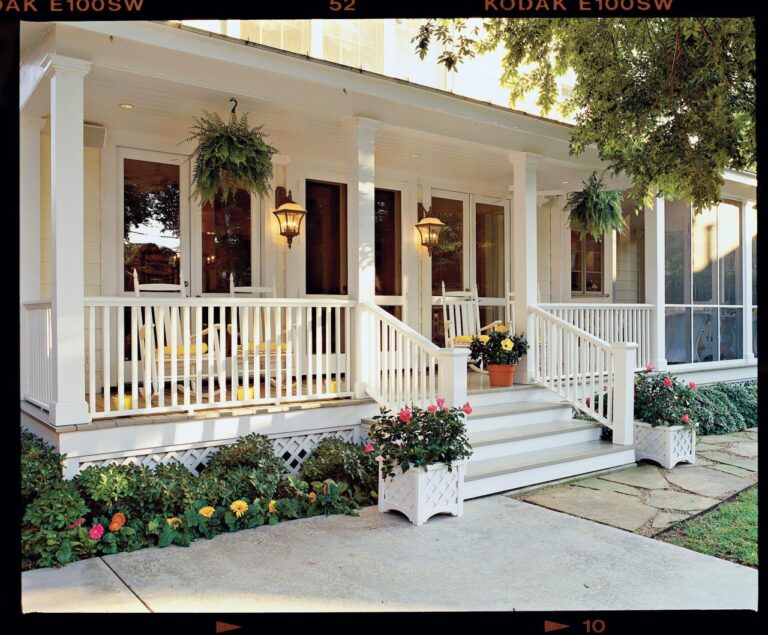Porch Decking Ideas
Porch decking ideas offer a world of possibilities for enhancing your home’s exterior and creating a welcoming outdoor living space. From selecting the perfect material – considering durability, cost-effectiveness, and aesthetic appeal – to designing the layout and pattern, the choices are vast. This guide explores various decking materials like wood, composite, and PVC, comparing their properties and suitability for different porch styles. We’ll also delve into popular decking patterns, provide design layouts for porches of varying sizes, and offer practical advice on construction, maintenance, and safety.
Beyond the practical aspects, we’ll explore how porch decking can seamlessly integrate with other outdoor features, such as railings, lighting, and landscaping, to create a cohesive and inviting atmosphere. We’ll also touch upon creating a mood board to visualize your ideal porch design, incorporating elements like color, texture, and lighting to achieve the desired ambiance. Ultimately, this comprehensive guide aims to empower you to create a stunning and functional porch deck that perfectly complements your home and lifestyle.
Porch Decking Materials
Choosing the right decking material is crucial for the longevity and aesthetic appeal of your porch. This section compares various materials, considering durability, maintenance, cost-effectiveness, and aesthetic suitability for different porch styles.
Decking Material Comparison
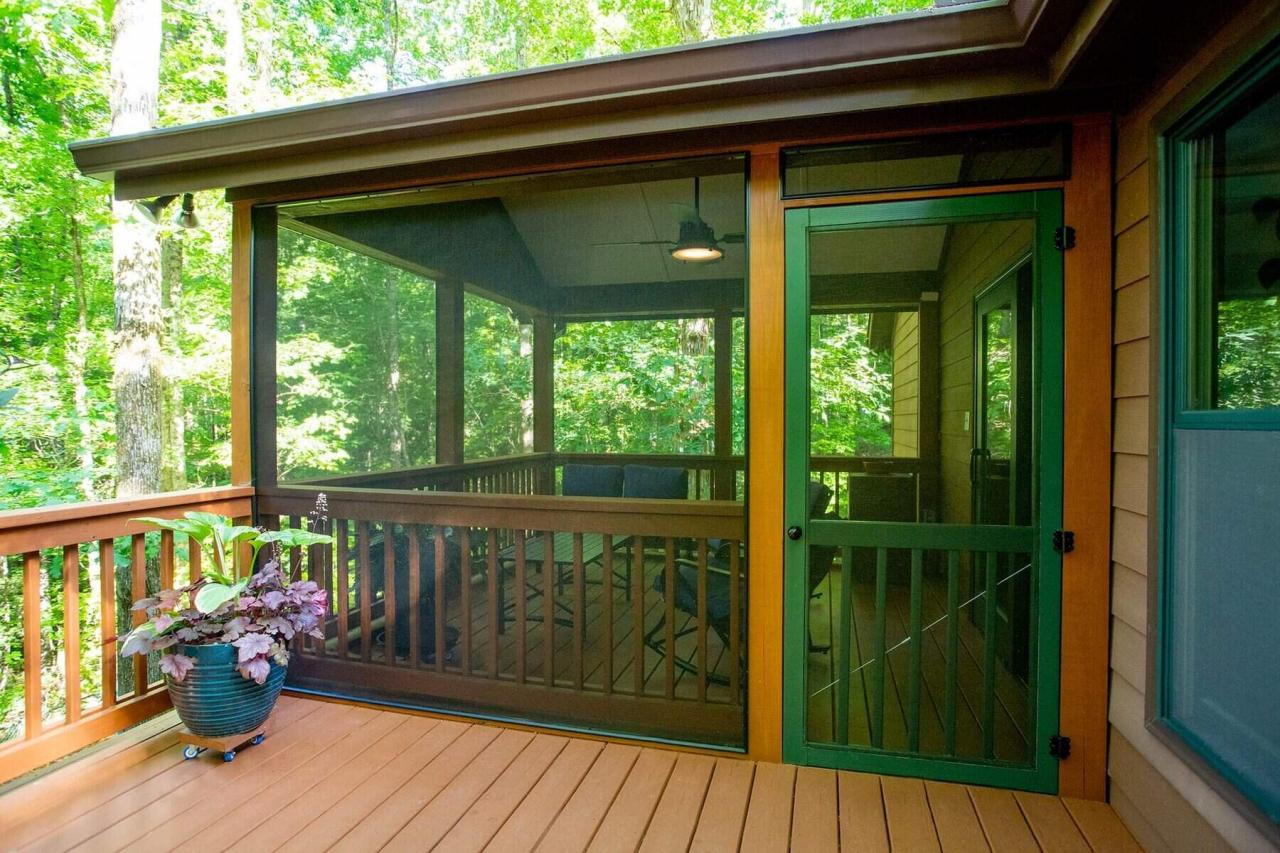
Source: storables.com
Three common porch decking materials are wood, composite, and PVC. Each offers a unique balance of durability, maintenance requirements, and cost.
| Material | Cost (Approximate Range) | Durability | Maintenance |
|---|---|---|---|
| Wood (e.g., Cedar, Redwood, Pressure-Treated Pine) | $3-$15 per square foot | Moderate to High (depending on wood type and treatment); susceptible to rot, insect damage, and weathering. | High; requires regular cleaning, sealing, and potential repairs or replacements. |
| Composite | $5-$20 per square foot | High; resistant to rot, insect damage, and weathering. | Low to Moderate; requires occasional cleaning and may need occasional spot repairs. |
| PVC | $8-$25 per square foot | Very High; extremely resistant to rot, insect damage, weathering, and fading. | Very Low; requires minimal cleaning. |
Aesthetic Appeal and Suitability
Wood decking, especially cedar and redwood, offers a natural, warm aesthetic, suitable for traditional and rustic porch styles. Its variations in color and grain create a unique visual appeal. Composite decking mimics the look of wood but with greater consistency in color and texture, making it suitable for a wider range of styles, from modern to traditional. PVC decking offers a clean, modern look, available in a variety of colors and often with a smooth, low-maintenance surface, suitable for contemporary designs.
Porch Decking Styles and Designs: Porch Decking Ideas
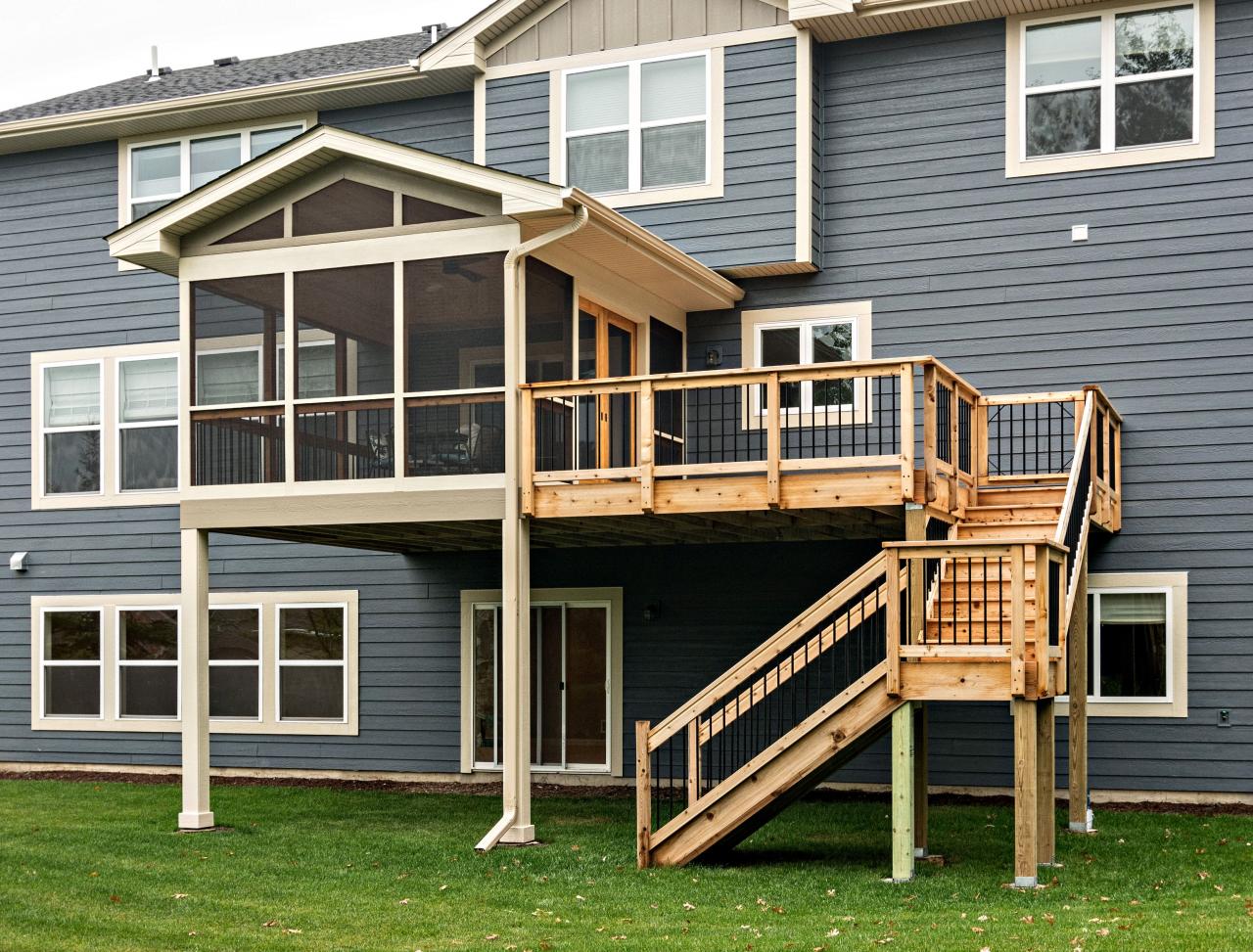
Source: pinimg.com
The pattern and layout of your porch decking significantly impact its overall appearance. This section explores popular patterns and provides design examples for different porch sizes.
Popular Decking Patterns
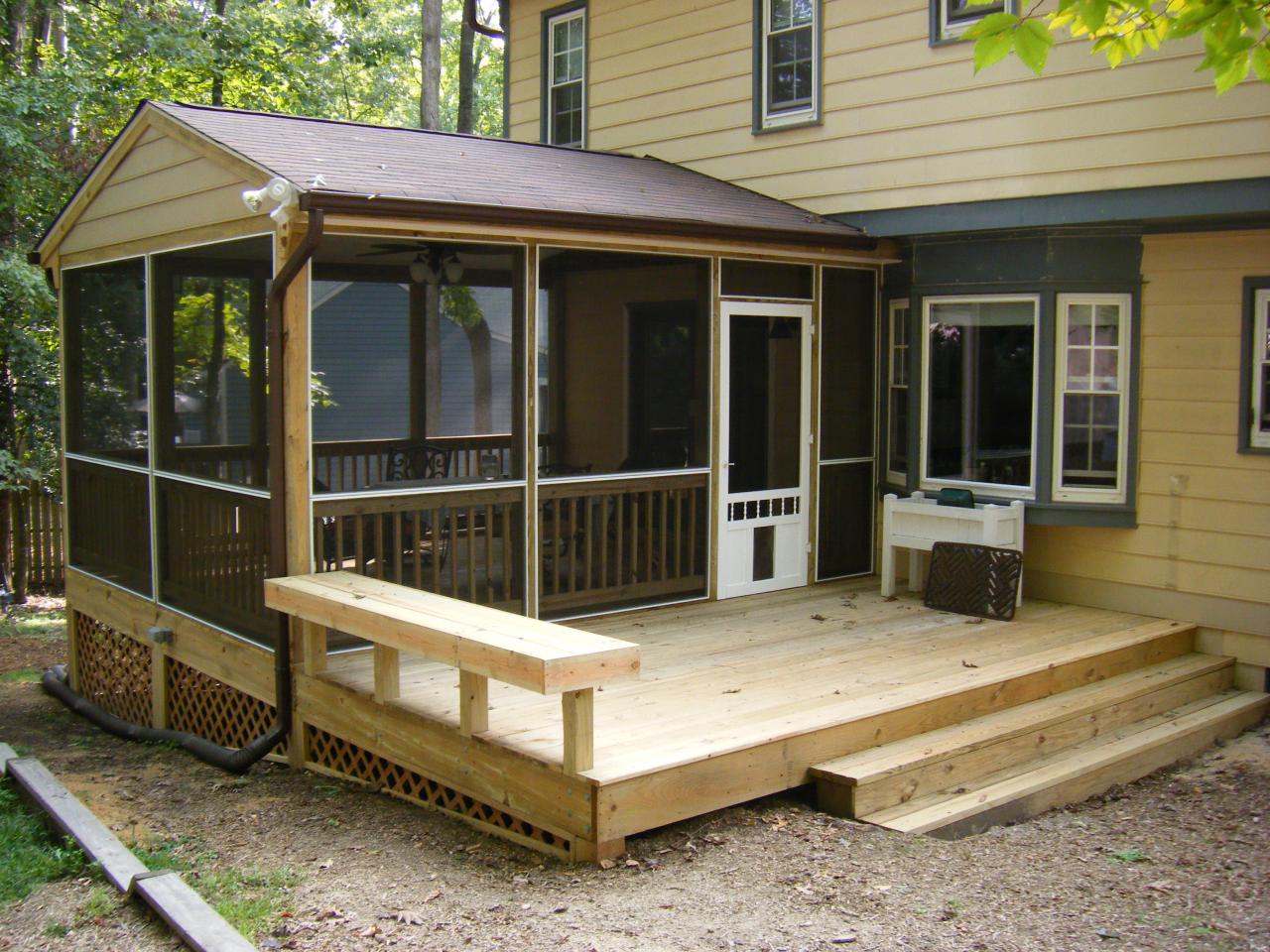
Source: rbmremodels.com
Several patterns can be used for porch decking, each offering a unique visual effect. Straight patterns are simple and classic, while diagonal patterns create a dynamic look, and herringbone patterns add a sophisticated touch. The choice of pattern can subtly influence the perceived size and shape of the porch.
- Straight Pattern: This classic pattern involves laying boards parallel to the porch’s length or width. Imagine a porch with a light grey straight-laid cedar deck. The consistent lines create a sense of calm and order. The natural wood grain adds visual interest.
- Diagonal Pattern: Laying boards at an angle adds visual dynamism. A dark brown composite deck laid diagonally on a large porch could create a sense of spaciousness and movement. The angled lines draw the eye across the deck.
- Herringbone Pattern: This intricate pattern, formed by arranging boards in a V-shape, adds a touch of elegance and sophistication. Imagine a smaller porch with a light-colored PVC deck laid in a herringbone pattern. The pattern creates a sense of visual complexity and richness, making the small space feel more interesting.
Porch Decking Layouts
- Small Porch: Straight-laid pattern using light-colored PVC decking to maximize the feeling of space. The light color reflects light, making the area feel brighter and larger.
- Medium Porch: Diagonal pattern using composite decking in a medium-brown tone to create visual interest and a sense of spaciousness. The diagonal lines draw the eye across the deck, creating a sense of movement and openness.
- Large Porch: Combination of straight and diagonal patterns using dark-stained wood decking to create visual interest and define different areas. The contrast of the patterns and the dark color adds drama and sophistication.
Decking Integration with Porch Features
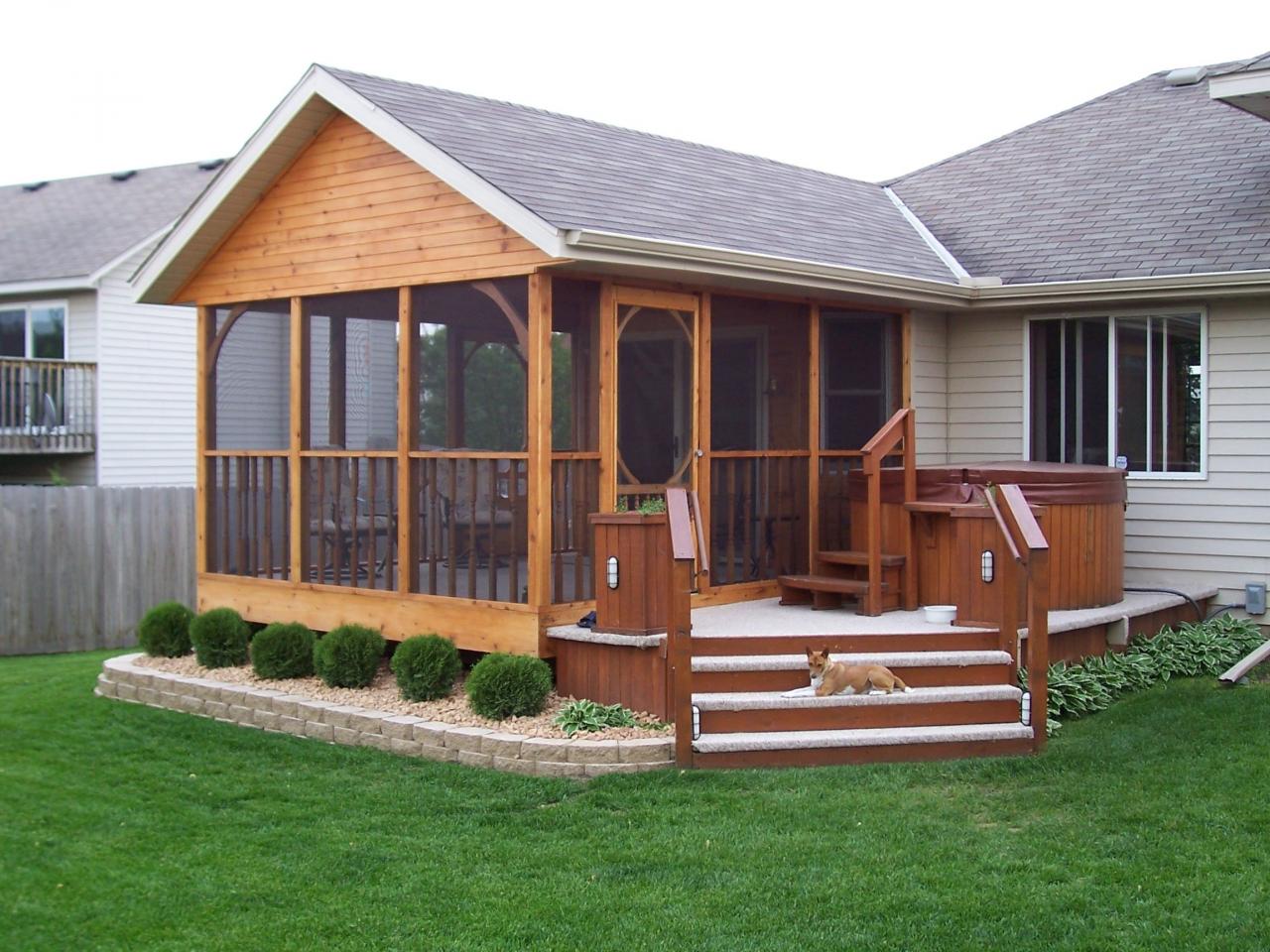
Source: pinimg.com
Seamless integration of decking with railings, steps, and lighting enhances both functionality and aesthetics. Consider matching materials for a cohesive look, or use contrasting materials to create visual interest. Properly integrated lighting can enhance safety and create a welcoming ambiance.
Building and Maintaining a Porch Deck
Proper installation and regular maintenance are essential for the longevity of your porch deck. This section provides a step-by-step guide for installation and Artikels maintenance procedures.
Porch Decking Installation, Porch Decking ideas
Installing a porch deck involves several steps. Proper planning and safety precautions are crucial for a successful outcome. Consult local building codes and regulations before starting.
- Prepare the ground: Level the ground and create a solid foundation.
- Install joists: Space joists according to the decking material’s specifications.
- Attach decking boards: Secure boards using appropriate fasteners.
- Install railings and steps: Ensure railings meet safety regulations.
- Finish the deck: Apply sealant or stain as needed.
Common Installation Mistakes
Common mistakes include improper joist spacing, using inadequate fasteners, and failing to account for the expansion and contraction of the decking material. These can lead to structural problems, squeaking, and premature deterioration.
Cleaning and Sealing
Cleaning methods vary depending on the decking material. Wood decks often require regular sweeping and occasional washing with a deck cleaner. Composite and PVC decks usually only need occasional sweeping and washing with mild soap and water. Sealing protects wood decks from weathering and moisture damage. Follow manufacturer instructions for specific products.
Repairing Minor Damage
Replacing a damaged board involves removing the damaged board, ensuring the supporting structure is sound, and installing a new board of the same material and thickness. Use appropriate fasteners and ensure proper alignment.
Porch Decking and Outdoor Living Spaces
A well-designed porch deck significantly enhances a home’s curb appeal and creates an inviting outdoor living space. This section explores ways to complement your deck with furniture, accessories, and landscaping.
Enhancing Exterior Appeal
The choice of decking material, color, and pattern greatly influences the overall aesthetic. A well-maintained deck adds value and visual interest to a home’s exterior, creating a welcoming and inviting entrance.
Outdoor Furniture and Accessories
Select outdoor furniture and accessories that complement the style and color of your deck and home’s exterior. Consider using weather-resistant materials and fabrics. Adding cushions, throws, and other accessories can enhance comfort and create a cozy atmosphere.
Mood Board Illustration
Imagine a mood board featuring a warm-toned composite deck, surrounded by lush greenery. The furniture includes wicker chairs and a small coffee table, all in neutral tones. Soft lighting, perhaps string lights or lanterns, creates a warm, inviting ambiance. The overall impression is one of relaxation and tranquility.
Plants and Landscaping
Integrating plants and landscaping around your porch deck creates a cohesive outdoor living space. Consider using planters with flowering plants or shrubs to add color and texture. Strategic placement of plants can also provide shade and privacy.
Porch Decking Safety and Accessibility
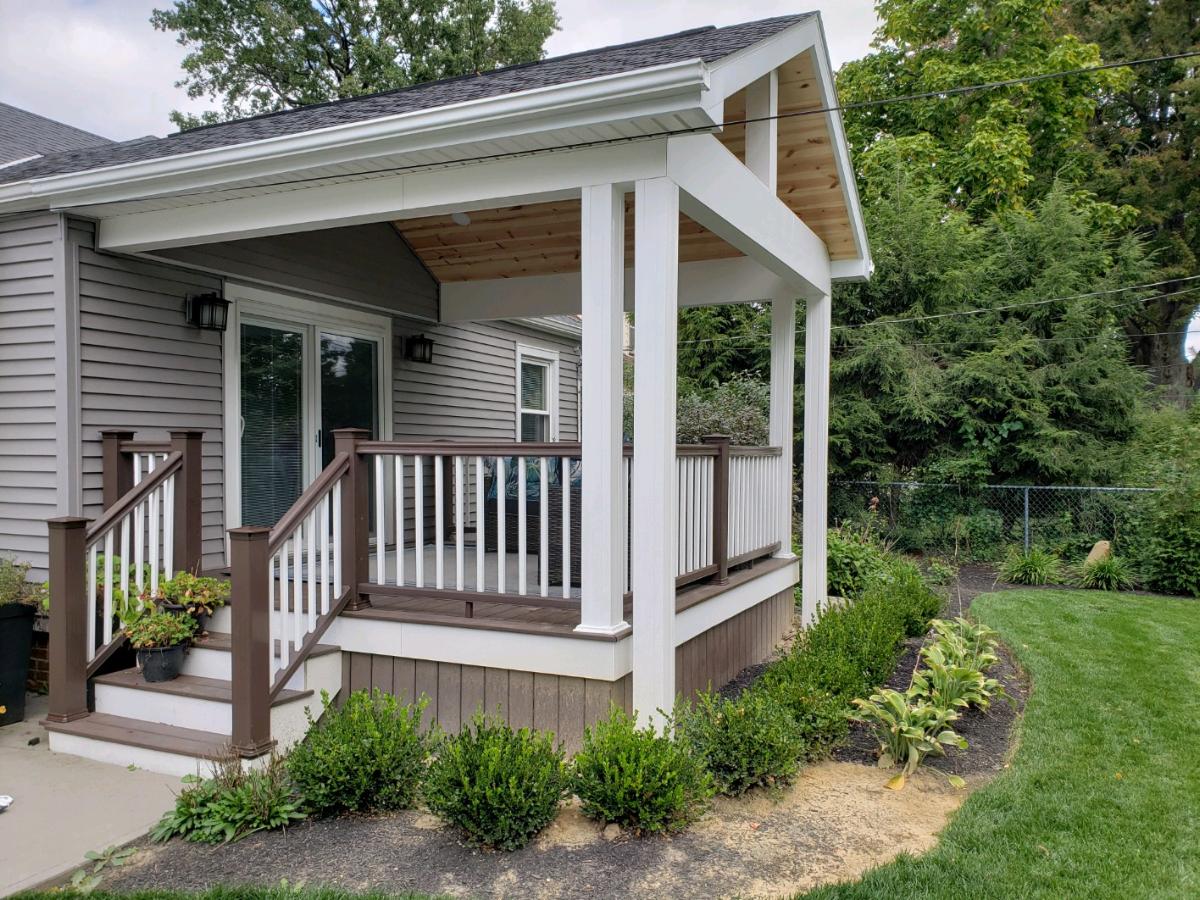
Source: archadeck.com
Safety and accessibility are paramount when designing and building a porch deck. This section discusses safety hazards, accessibility features, and relevant building codes.
Potential Safety Hazards
Potential hazards include slippery surfaces, inadequate railings, and uneven decking. Preventative measures include using non-slip materials, ensuring railings meet height and spacing requirements, and regularly inspecting the deck for damage.
Railing Installation and Height Requirements
Properly installed railings are crucial for safety. Height and spacing requirements vary depending on local building codes, but generally, railings should be at least 36 inches high and have balusters spaced no more than 4 inches apart.
Accessible Porch Decking Designs
- Ramps instead of steps for wheelchair access.
- Wide walkways for easy maneuvering.
- Handrails on both sides of ramps and steps.
- Non-slip surfaces.
Building Codes and Regulations
Consult local building codes and regulations for specific requirements regarding porch deck construction, including materials, dimensions, and safety features. Compliance ensures the safety and structural integrity of your deck.
Frequently Asked Questions
What is the average lifespan of different porch decking materials?
Lifespans vary greatly. Pressure-treated wood can last 10-15 years with proper maintenance, while composite decking often lasts 25-30 years. PVC decking boasts the longest lifespan, potentially exceeding 50 years.
How much does it cost to build a porch deck?
Costs depend heavily on size, materials, and labor. A small deck might cost a few thousand dollars, while a larger, more elaborate one could easily reach tens of thousands.
Can I install the porch decking myself?
While possible for DIY enthusiasts with experience, professional installation is often recommended, especially for complex designs or larger porches. Improper installation can lead to safety hazards.
What are some common porch decking design mistakes to avoid?
Common mistakes include inadequate drainage, improper fastening, neglecting proper sealing, and overlooking building codes and safety regulations.
How often should I clean and seal my porch deck?
Cleaning frequency depends on the material and climate. Annual cleaning is generally recommended, with sealing every 2-3 years for wood and composite decks.
